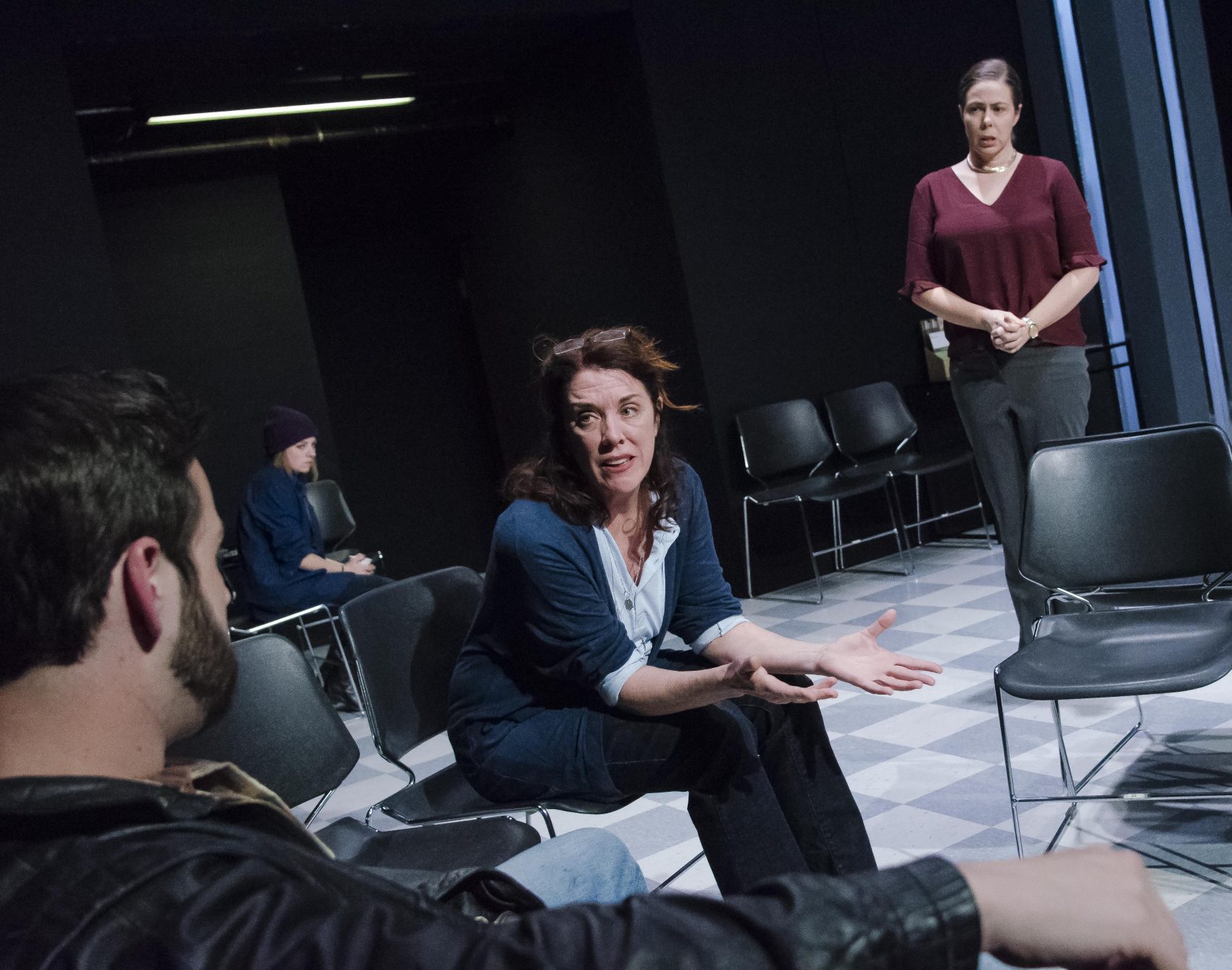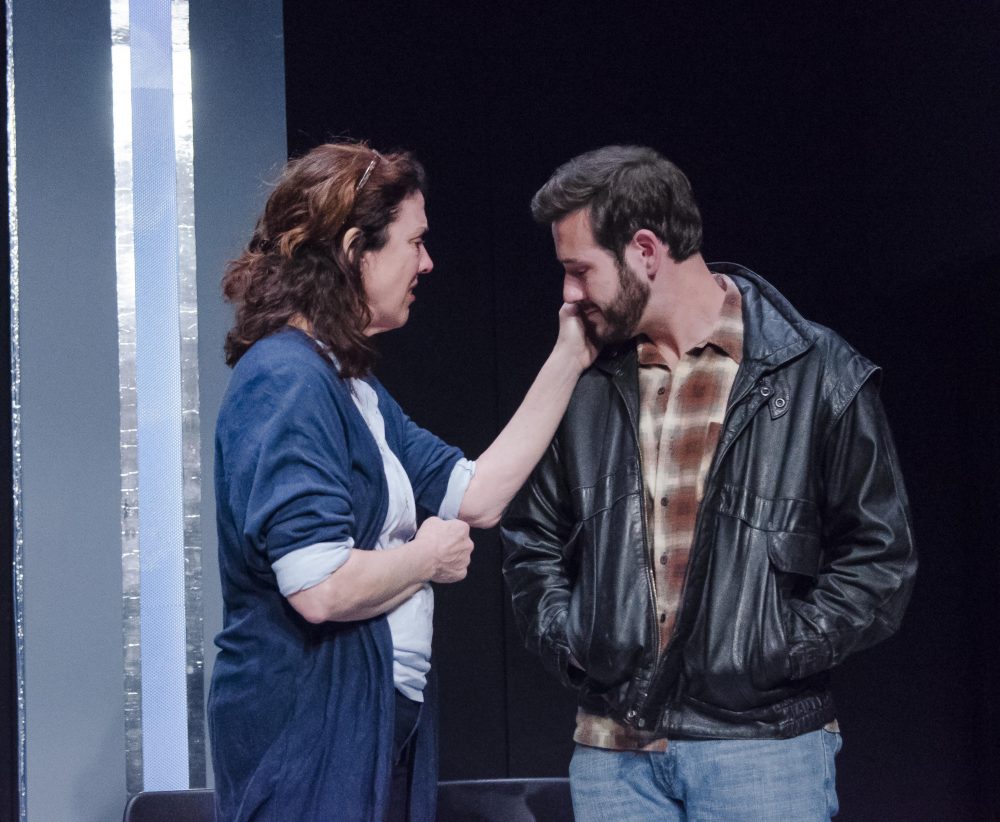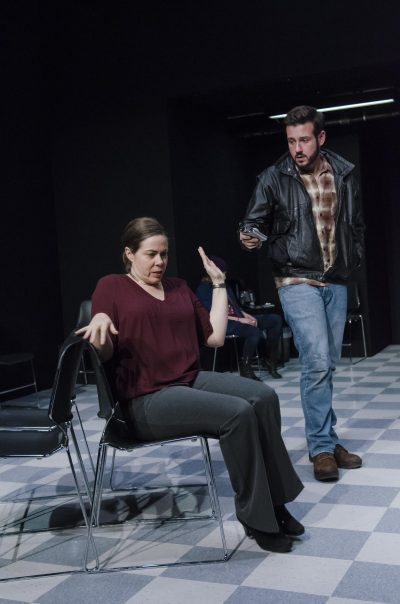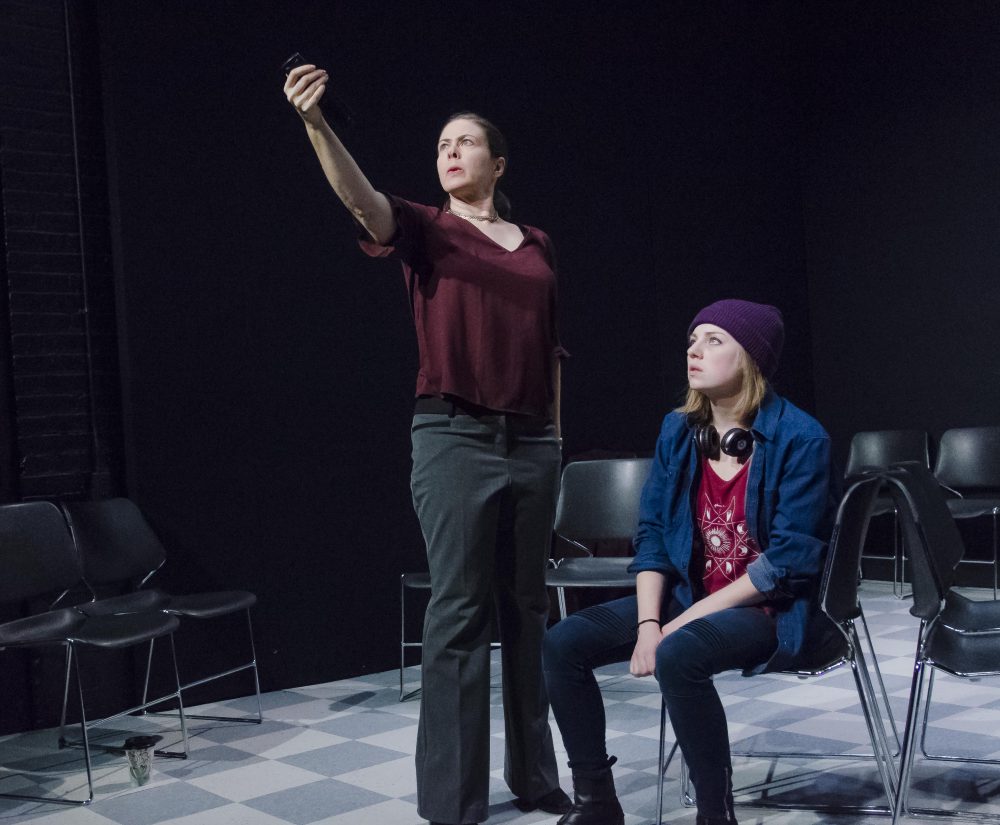Advertisement
End-Of-Life Debate Among Siblings Opens Old Wounds In Playwright Theatre's 'Faithless'

“Faithless” is at least faithful to a tried-and-true formula for fledgling playwrights and others: Bring together conflicting, conflicted siblings at the deathbed of a parent and watch the fur fly.
Boston University MFA in Playwriting candidate Andrew Joseph Clarke sets his new work — which is being given a professional workshop production at Boston Playwrights’ Theatre through Dec. 18 — in the waiting room of a suburban Boston hospital. There, adult sisters Maureen and Patty, along with Patty’s teenage daughter, Sam, emerge at midnight from a harrowing bout during which Maureen and Patty’s mother’s life has been saved -- at least temporarily. The sisters must decide whether to subject her to a second surgery that may extend her life without restoring its quality or move on to palliative care. Things get more complicated when long-absent brother Skip arrives lugging a heavy bag of issues, few of which have to do with mom.

"Faithless" is part of an extended Boston Playwrights’ Theatre season that includes five new works by MFA candidates being produced in conjunction with the BU College of Fine Arts School of Theatre as part of its New Play Initiative. (Most previous BPT seasons have consisted of fewer productions, mostly of plays by more established dramatists who are alumnae.) One must surely applaud the Initiative; the plays, though directed by MFA candidates, are being given professional stagings, in the case of “Faithless” featuring a couple of big-gun area actors. How much easier this makes it for emerging writers to accurately see their developing work! Still, it’s hard not to feel you’ve seen this play before -- and more than once.
Clocking in at a little over an hour, “Faithless” seems to me insufficiently resolved (though a resolution to the conflict over the mother’s care, as well as a new peace among the siblings, is implied). Still, Clarke pens natural-sounding dialogue that’s often successfully wry, with the occasional and welcome loopy digression. And his characters are, as the playwright says he intends, “relatable” -- the idea being that any particular family dynamic can prove universal.
In this case, arguments past and present are rolled up in the family’s varyingly retained Catholic faith. Patty, a nurse who has moved from New York back to Arlington following a divorce, favors making the mother comfortable and allowing her to die. Maureen, a teacher who has lived with her mother in the family home and kept their shared Catholic beliefs, stubbornly insists that only God can make life-and-death decisions.

There is a thoughtful play washing around in this consideration of end-of-life care — if it were to be deepened. But “Faithless” has other things on its abbreviated plate. When black sheep Skip turns up after an absence of more than 10 years, the play devolves into an airing of old grievances, most having less to do with ailing mom, herself a victim, than with the siblings’ long-dead dad. In the shared view of Maureen and Skip, he was a violent, hardline horror who cowed his daughter into her Catholicism and drove his son away because the older man’s rigid faith could not encompass his son’s sexuality.
Patty, her father’s favorite and the family’s erstwhile good girl, is less inclined to demonize the dead father and indeed gets quite uppity when others do. But she is also deluding herself about having an honest relationship with her own daughter, a curious and watchful teen who is easily the play’s most interesting character. (At one point, Sam jumps into the argument about God-playing with a long exegesis, gleaned from her phone, about the “biological immortality” of lobsters.)
BU MFA candidate in directing Stephen Pick helms the BPT staging, which is sensitive and sparky, never ponderous. The set by Baron E. Pugh is aptly sterile, a checkerboard of gray tiles overpopulated with black-and-metal chairs to emphasize the loneliness of this particular vigil, with only the play’s four characters rattling around the space. And the actors, conveying the unsaid along with the loudly said, are credible and empathetic -- even when their characters, furiously re-licking old wounds, go on about the past in a manner that blurs rather than illuminates the crisis of the present.
As Maureen, the excellent Maureen Keiller, looking aptly frazzled, blends a caustic nature with a true belief and a light touch. And her last-minute capitulation to the truth is touchingly beatific. Christine Power deftly negotiates prickly territory as family peacemaker and history-rewriter Patty. Greg Maraio presents a prodigal son who’s both amusingly blunt and believably broken. And BU senior Abby Knipp brings a watchful, eye-rolling intensity to Sam, whose abrupt questions and quirky observations nudge the proceedings along. (“Are you my gay uncle, Skip?” she inquires upon the entrance of the long-absent relative.)

“Faithless,” if it were to dig deeper into the debate about end-of-life care, might overcome the handicap of a premise that’s somewhat staler than this production. I’d also like to see the play lighten up on some of the retroactive whining and blaming: the dad-dad-dad stuff that has arrested the siblings’ relationships. “When did we stop being kids?” asks Patty at the beginning of the play -- to which the ensuing if oft-poignant drama’s answer would seem to be “Never.”
